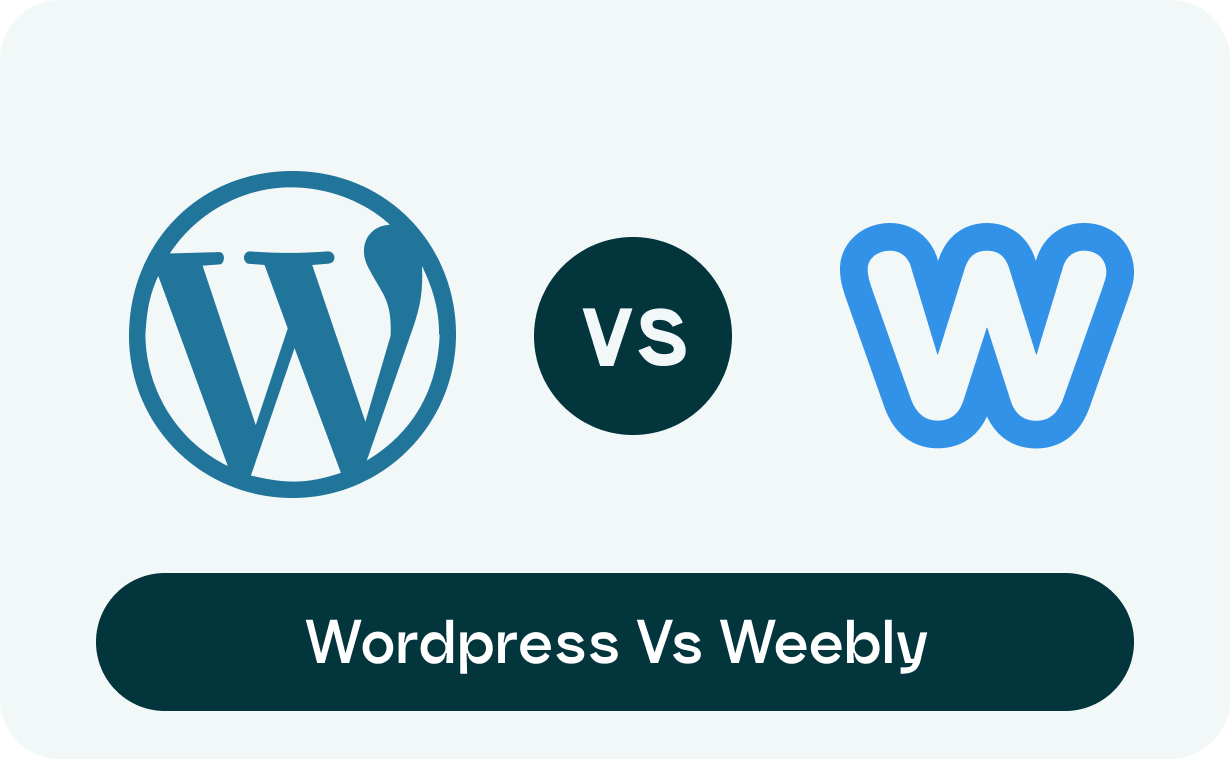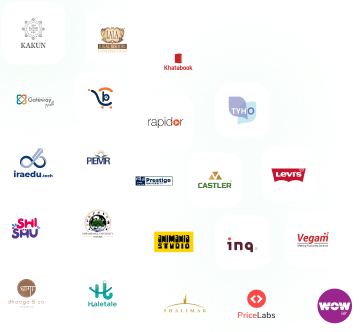WordPress vs Weebly: A Comprehensive Comparison in 2025
When choosing the right website builder for your online presence, two popular names that often come up are WordPress and Weebly. Both have their own advantages and cater to different types of users. WordPress is a flexible, open-source platform that powers millions of websites, while Weebly is a simpler, drag-and-drop website builder aimed at users who want to create websites with minimal effort.
In this comparison, we’ll dive into their features, ease of use, pricing, customization options, and SEO capabilities, helping you make an informed decision about which platform suits your needs.
Overview of WordPress
WordPress is the most popular Content Management System (CMS) globally. It powers more than 40% of all websites, thanks to its flexibility, scalability, and robust ecosystem of plugins and themes.
Key Features of WordPress:
-
Open-source platform, free to use
-
Highly customizable with thousands of plugins and themes
-
Ideal for all types of websites, including blogs, eCommerce, and business sites
-
Extensive community support and resources
-
Advanced features for experienced users
-
Great SEO capabilities with plugins like Yoast SEO and Rank Math
-
Self-hosted (WordPress.org) or hosted on WordPress.com
Overview of Weebly
Weebly is an easy-to-use website builder known for its intuitive drag-and-drop interface. It’s ideal for small businesses, bloggers, and users who want to create a website quickly without much technical knowledge. Owned by Square, it also offers integrated eCommerce tools.
Key Features of Weebly:
-
Drag-and-drop website builder
-
Pre-designed templates for easy setup
-
Built-in eCommerce functionality (good for small online stores)
-
All-in-one platform (hosting and domain included)
-
Simple blogging features
-
Limited customization options compared to WordPress
-
Cloud-based, no need for third-party hosting
Feature Comparison Table:
| Feature | WordPress | Weebly |
|---|---|---|
| Ease of Use | Moderate (requires some learning) | Very easy (drag-and-drop) |
| Customization | Very high (plugins, themes, code) | Low to moderate (limited flexibility) |
| SEO Capabilities | Excellent (with plugins like Yoast SEO) | Good (basic SEO features) |
| eCommerce | Requires WooCommerce or plugins | Built-in eCommerce tools |
| Cost | Free (hosting and domain extra) | Subscription-based (varies by plan) |
| Support | Large community, forums, and paid support | Email and chat support (limited) |
| Hosting | Self-hosted or hosted by WordPress.com | All-in-one hosting included |
Ease of Use
WordPress:
WordPress has a steeper learning curve than Weebly, particularly if you're using the self-hosted version (WordPress.org). While the platform is user-friendly, especially for non-technical users, mastering the nuances of customization and setting up advanced features requires time and effort.
-
Pros:
-
The block editor (Gutenberg) simplifies content creation
-
Large library of plugins and themes
-
Detailed control over settings and customization
-
-
Cons:
-
Takes time to set up and customize
-
Requires more technical knowledge for advanced features
-
Weebly:
Weebly is designed for simplicity. Its drag-and-drop editor makes it easy for beginners to create and manage websites. There’s no need to worry about web hosting, domain registration, or complicated settings—everything is handled for you.
-
Pros:
-
Quick and easy setup
-
Drag-and-drop functionality for easy design customization
-
No technical skills required
-
-
Cons:
-
Limited flexibility for advanced customizations
-
Less control over the back-end features
-
Winner: Weebly (for beginners)
Customization and Flexibility
WordPress:
WordPress shines when it comes to customization. With thousands of themes and plugins, you can customize your website to suit your needs. Whether you’re a blogger, eCommerce store owner, or portfolio creator, there are countless options to choose from.
-
Pros:
-
Almost unlimited customization with plugins and themes
-
Ability to add custom code for further personalization
-
Great for building complex websites
-
-
Cons:
-
Requires technical expertise for complex customizations
-
Can become overwhelming for beginners
-
Weebly:
Weebly is more limited in terms of customization. While it offers a variety of templates and some design flexibility, it doesn't allow for the same level of detailed control as WordPress.
-
Pros:
-
Easy-to-use interface for basic customizations
-
Pre-designed templates for quick website setup
-
-
Cons:
-
Limited design flexibility
-
No access to advanced features or custom code
-
Winner: WordPress (for flexibility)
SEO Capabilities
WordPress:
WordPress is widely recognized for its SEO capabilities. With plugins like Yoast SEO and Rank Math, optimizing your site for search engines becomes straightforward. You can easily manage meta tags, sitemaps, and other SEO settings with just a few clicks.
-
Pros:
-
SEO-friendly with a wide range of SEO plugins
-
Easy to manage on-page SEO
-
Full control over SEO settings
-
-
Cons:
-
Needs to install plugins for advanced features
-
Weebly:
Weebly offers built-in SEO features, allowing you to customize titles, descriptions, and other meta data. However, the platform doesn’t provide as much flexibility for advanced SEO strategies.
-
Pros:
-
Basic SEO features (meta titles, descriptions, etc.)
-
No need for plugins
-
-
Cons:
-
Limited SEO flexibility compared to WordPress
-
Requires manual setup for advanced SEO
-
Winner: WordPress (for advanced SEO)
Pricing
WordPress:
WordPress itself is free to use, but you’ll need to pay for hosting, domain registration, and any premium themes or plugins you decide to use. This means the total cost can vary depending on your specific needs.
-
Pros:
-
Free core software
-
Flexible pricing (pay for what you need)
-
-
Cons:
-
Additional costs for hosting, premium themes, and plugins
-
Weebly:
Weebly offers several pricing tiers, from a free plan with basic features to paid plans that include more advanced tools and eCommerce features. The pricing is predictable, but it’s important to note that the free plan has limitations.
-
Pros:
-
All-in-one platform with hosting and domain included
-
Predictable pricing
-
-
Cons:
-
Limited features on the free plan
-
More expensive than self-hosted WordPress if you need premium features
-
Winner: WordPress (for flexibility in pricing)
Conclusion: Which Should You Choose?
| Criteria | Best Choice |
|---|---|
| Ease of Use | Weebly |
| Customization | WordPress |
| SEO Capabilities | WordPress |
| eCommerce Features | Weebly |
| Cost | WordPress |
| Support | WordPress |
Final Verdict:
-
Choose WordPress if you need a flexible, customizable platform with advanced features and the potential for scaling.
-
Choose Weebly if you're looking for an easy-to-use, all-in-one website builder with simple drag-and-drop functionality.
FAQs: WordPress vs Weebly
1. Is WordPress better than Weebly for beginners?
While WordPress is more flexible, Weebly is generally easier for beginners due to its drag-and-drop editor and all-in-one hosting.
2. Can I build an eCommerce site on WordPress?
Yes, WordPress supports eCommerce with plugins like WooCommerce, allowing you to create robust online stores.
3. Does Weebly offer free hosting?
Yes, Weebly provides free hosting with its plans. However, the free plan has limitations, such as displaying Weebly ads on your website.
4. Which platform is more SEO-friendly?
WordPress has more advanced SEO capabilities with plugins like Yoast and Rank Math, giving it an edge for SEO.
5. Can I use custom code in Weebly?
Weebly allows you to add custom code in limited areas, but it doesn’t offer the same level of customization as WordPress.











